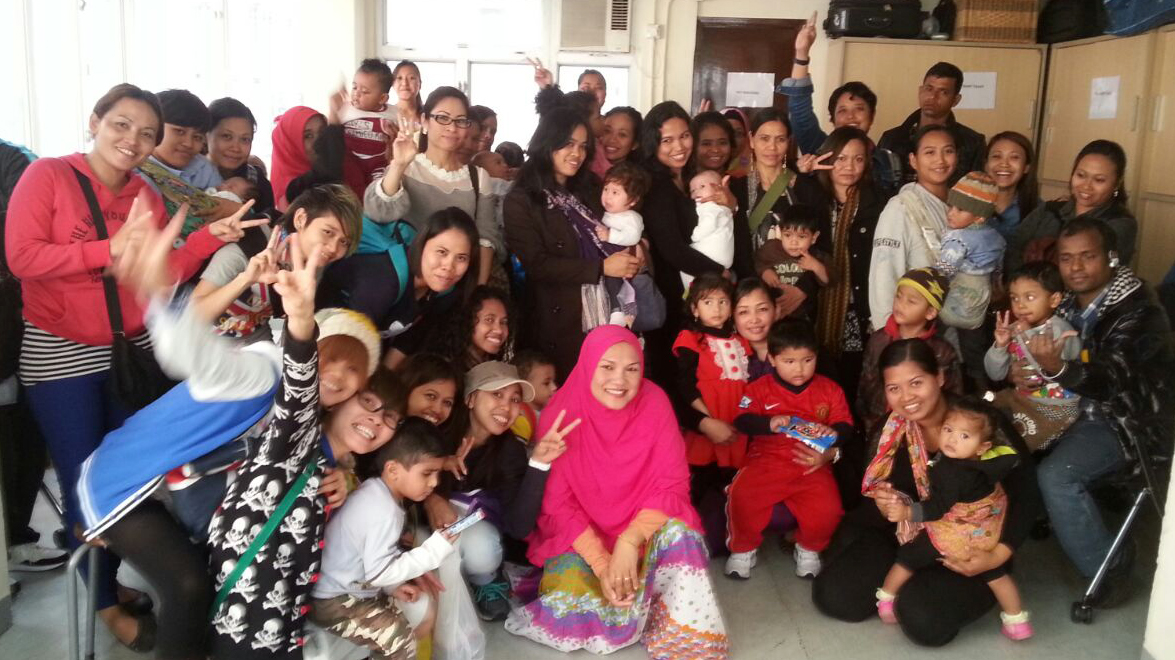
There are two sides to the issue of foreign domestic workers falling pregnant and losing their jobs – one is local, the other overseas. On the home front, TVB recently reported on the plight of thousands of maids whose lives were disrupted by pregnancies that are not formulated into policies and, in some cases, are not respected by employers as workers’ rights.
There are some 320,000 foreign domestic helpers (FDH) who account for around 3 per cent of the Hong Kong population. The infamous case of Erwiana symbolised the risks of serious human and labour rights violation by devious employers who might treat maids as disposable slaves. By seemingly failing to enforce the law, the government is not making their plight easier.
Maternity protection is clearly a major concern for hundreds of thousands of female workers in prime child-bearing age. The Employment Ordinance is crystal clear: maids are eligible to 10 weeks’ paid maternity leave (after 40 weeks employment) and the dismissal of a pregnant worker is an offense. An employer who contravenes the provision is liable to prosecution and a fine of HK$ 100,000. But how many employers were successfully prosecuted?
The grim side of this story is that hundreds of pregnant maids seek asylum after being unjustly terminated, or falling out of employment The fear of departing Hong Kong should not be oversimplified. The fear matrix may include complex factors: income loss, illegal work, local partners, prior relationships, support networks, loan sharks, debt bondage, ostracization, religious prohibitions, family shame, customary expectations, racial discrimination and the threat of honour killing.
Contrary to popular belief, any person who overstays in Hong Kong may lodge a protection claim which ought to be approached on the premise that it is genuine until it is proven that it cannot be substantiated. Consequently no adverse inferences may be drawn against ex-maids (pregnant or not) since they might have legitimate claims and several have been recognized as refugees.
Our blog “Understanding the domestic work-refugee nexus” explained that maids are predictably drawn into the asylum sphere for several reasons. A crucial one is that they are not just workers, but are also women who endeavour to foster human relations in a society that diminishes their social worth and dehumanizes their femininity. It is natural that maids and refugees date because both communities are shunned by residents and are often deemed lesser human beings.
The distribution of thousands of boxes of Pampers (and condoms) at Vision First testifies to an escalating problem that the authorities are advised not to underestimate. The big picture is as predictable as it is problematic. Short of sterilization, Immigration has no way of curbing the sexual activity of 320,000 mostly female maids and 10,000 mostly male refugees who find comfort in each other’s arms. Is it surprising that these two communities meet and mingle?
Under the existing scheme, the government offers pregnant maids few choices but to return home under impoverished, unsafe circumstances, or seek asylum. Refugee fathers have little to offer their new families without work rights and adequate welfare assistance. The immigration status of the children follows that of the parents: if neither is a permanent resident, then the children are overstayers under the family’s or a parent’s claim.
The fear matrix becomes crucial. Once the asylum process is concluded, mothers ponder the pros and cons of returning home: Is the fear greater than the prospect of an immiserated existence? Is the danger of returning substantial, or could alternatives be explored given time? Nobody is under any illusion about the zero percent acceptance rate, but the variables are many and timing is key, because it is easier to return with a toddler than an infant. It would be advisable to allow mothers to work again rather than compel them to seek asylum as the only available pathway.
The government is concerned about the escalating cost (640 million HKD according to this report) of the asylum scheme. Priority should thus be given to formulating viable alternatives. Hong Kong society cannot enjoy the privilege of (underpaid) domestic workers without making provisions for natural consequences. We should not turn a blind eye to thousands of women whose rights are violated by policies that fail to envision maternity and its ramifications locally and overseas. Again Hong Kong is attempting to have its cake and eat it.


